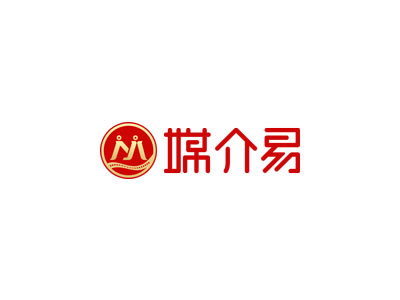
Alibaba.com: Manufacturers, Suppliers, Exporters
Popularity index: Update time: 2021-12-21Add to Favorites Visit Now


Alibaba Group: A Global Leader in Digital Economy Alibaba Group Holding Limited, founded in 1999 by Jack Ma and a team of 18 co-founders in Hangzhou, China, has grown from a small B2B e-commerce startup into a multinational conglomerate reshaping global digital commerce, cloud computing, and digital entertainment. Rooted in the mission "to make it easy to do business anywhere," Alibaba’s ecosystem spans multiple industries, connecting businesses, consumers, and creators across the globe. 1. Core Business Segments Alibaba’s operations are organized into several key pillars, each addressing distinct market needs while synergizing with one another to create a seamless digital ecosystem. 1.1 E-Commerce: The Foundation of Alibaba’s Ecosystem E-commerce remains Alibaba’s core, with platforms tailored to different user groups and markets: - **Alibaba.com**: The group’s original B2B (Business-to-Business) platform, launched in 1999. It connects manufacturers, suppliers (mostly from China and Asia) with buyers worldwide (wholesalers, retailers, and enterprises), facilitating cross-border trade in bulk goods—from electronics and textiles to machinery and raw materials. - **Taobao**: Launched in 2003, Taobao is China’s largest C2C (Consumer-to-Consumer) and B2C (Business-to-Consumer) open marketplace. It hosts millions of small and medium-sized sellers, offering an extensive range of products (clothing, home goods, handmade items, etc.) at competitive prices. Unlike many e-commerce platforms, Taobao initially focused on free listings for sellers, driving rapid user adoption. - **Tmall**: A premium B2C platform established in 2008, Tmall focuses on branded products. It partners with global and local brands (e.g., Apple, P&G, L’Oréal) to sell authentic, high-quality goods directly to consumers, emphasizing trust and after-sales service. It is a key channel for international brands entering the Chinese market. - **Lazada**: Acquired in 2016, Lazada is a leading e-commerce platform in Southeast Asia, operating in six countries (Indonesia, Malaysia, the Philippines, Singapore, Thailand, Vietnam). It adapts Alibaba’s e-commerce model to local preferences, offering fashion, electronics, and daily necessities. - **AliExpress**: A cross-border B2C platform targeting global consumers (outside China). It enables small Chinese sellers to reach buyers worldwide, with features like low-cost shipping and buyer protection, making it popular for affordable, niche products. 1.2 Cloud Computing: Alibaba Cloud (Aliyun) Alibaba Cloud, launched in 2009, is China’s largest and the world’s third-largest public cloud service provider (after AWS and Microsoft Azure). It offers a comprehensive suite of cloud services, including: - Infrastructure as a Service (IaaS): Servers, storage, and networking. - Platform as a Service (PaaS): Development tools, databases, and AI/ML frameworks. - Software as a Service (SaaS): Enterprise solutions for CRM, HR, and supply chain management. Alibaba Cloud serves millions of customers, from startups and SMEs to large enterprises (e.g., Coca-Cola, Sony) and government agencies. It also plays a critical role in supporting Alibaba’s own e-commerce and digital services, ensuring scalability during peak events like Singles’ Day. 1.3 Digital Payments & FinTech: Ant Group (Affiliate) While Ant Group is a separate entity, it originated from Alibaba’s Alipay (launched in 2004) and remains closely linked to Alibaba’s ecosystem. Key services include: - **Alipay**: China’s leading mobile payment app, with over 1 billion active users. It enables peer-to-peer transfers, in-store payments, bill splitting, and online checkout (integrated with Taobao, Tmall, and third-party merchants). - **Yu’ebao**: A money market fund offered via Alipay, allowing users to earn interest on idle funds in their Alipay wallets. - **Ant Credit Pay (Huabei)**: A consumer credit service similar to a digital credit card, supporting installment payments. 1.4 Logistics: Cainiao Network Cainiao Network, founded in 2013, is a logistics technology platform designed to solve the "last-mile" and cross-border shipping challenges of Alibaba’s e-commerce business. It does not own logistics assets directly but partners with over 2,000 logistics companies (e.g., SF Express, ZTO Express) to create a data-driven network. Key features include: - Real-time package tracking. - Warehousing solutions for sellers (e.g., "Cainiao Warehouse" for cross-border sellers). - Global shipping services, with delivery times reduced to 3-7 days for major markets (vs. traditional 2-4 weeks). 2. Global Footprint & Market Impact - **Geographic Reach**: Alibaba operates in over 200 countries and regions, with a strong presence in Asia (China, Southeast Asia), Europe, and North America. Its cross-border platforms (Alibaba.com, AliExpress) and cloud services (Alibaba Cloud) are primary drivers of global expansion. - **Economic Contribution**: In China, Alibaba supports over 50 million jobs (including sellers, logistics workers, and service providers) and helps millions of SMEs access global markets. Its annual "Singles’ Day" (November 11) shopping festival—launched in 2009—has become the world’s largest online sales event, with 2023 GMV (Gross Merchandise Volume) exceeding 1 trillion RMB (~$138 billion). - **Market Position**: As of 2024, Alibaba is one of the world’s largest companies by market capitalization, listed on the New York Stock Exchange (NYSE: BABA) since 2014 and the Hong Kong Stock Exchange (HKEX: 9988) since 2019. 3. Innovation & Future Focus Alibaba invests heavily in long-term technologies to maintain its competitive edge, with key focus areas: - **Artificial Intelligence (AI)**: Integrating AI into e-commerce (personalized recommendations), cloud services (AI-powered data analytics), and logistics (route optimization for Cainiao). - **Blockchain**: Exploring blockchain for supply chain traceability (e.g., verifying the authenticity of luxury goods, food safety) and digital payments. - **Sustainability**: Cainiao aims to achieve carbon-neutral shipping by 2030, and Alibaba Cloud has launched "green cloud" services to reduce data center energy consumption. - **New Retail**: Blending online and offline shopping experiences (e.g., Hema Fresh, a chain of grocery stores where customers can shop in-store or order via app for 30-minute delivery; Taobao Future Store, a cashier-less convenience store). 4. Key Challenges & Controversies Like many large tech companies, Alibaba faces challenges: - **Regulatory Scrutiny**: In China, Alibaba has been subject to antitrust investigations (e.g., a 2.8 billion RMB ~$387 million fine in 2021 for "abusing market dominance") and data security regulations, leading to restructuring of some business units (e.g., separating Alipay from Alibaba). - **Competition**: Domestically, it competes with JD.com (e-commerce, logistics) and PDD (Temu’s parent company, focusing on low-cost cross-border e-commerce). Globally, it faces competition from Amazon (e-commerce, cloud) and local players (e.g., Shopee in Southeast Asia). - **Economic Uncertainty**: Slower economic growth in China and global inflation have impacted consumer spending, leading to moderate growth in e-commerce GMV in recent years. 5. Mission & Corporate Culture Alibaba’s core values, known as the "Six Values," guide its operations: 1. Customer First, Employee Second, Shareholders Third 2. Trust 3. Teamwork 4. Integrity 5. Passion 6. Commitment This culture emphasizes long-term thinking over short-term profits and encourages innovation—exemplified by Jack Ma’s famous quote: "We never give up. Today is difficult, tomorrow is more difficult, but the day after tomorrow is beautiful." In summary, Alibaba Group is more than an e-commerce company—it is a digital ecosystem that integrates commerce, cloud, payments, and logistics to redefine how business is done globally. Its ability to adapt to changing markets and invest in future technologies ensures it remains a key player in the global digital economy.
Related Websites

SPSSPRO (Scientific Platform Serving for Statistics Professional)
Update time: 2021-12-21
MediaEasy | Global Media Direct Acquisition and Distribution Platform
Update time: 2021-12-21
Ecer Freight Official Website - Professional International Logistics Service Platform
Update time: 2021-12-21
SophNet | Cloud computing power platform
Update time: 2021-12-21
TRAE - The Real AI Engineer
Update time: 2021-12-21
Kling AI - www.klingai.com
Update time: 2021-12-21
HopeGoo All-in-One Travel Platform
Update time: 2021-12-21
CTE China Toy Expo - Comprehensive Toy Trade Platform
Update time: 2021-12-21
Amanbo International Station - A digital Platform for China-Africa Trade
Update time: 2021-12-21
Weaver Group - Weaver Network - global.weaver.com.cn
Update time: 2021-12-21





